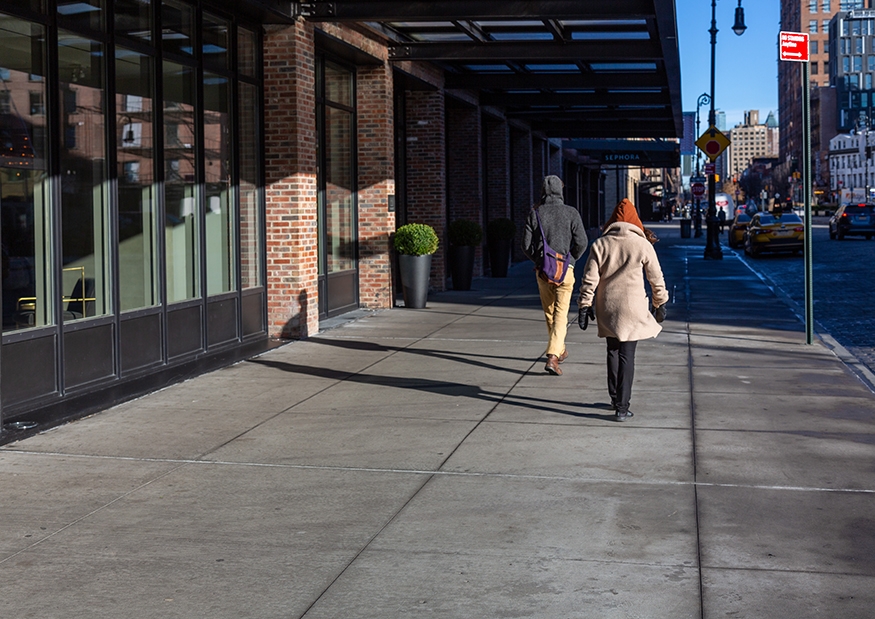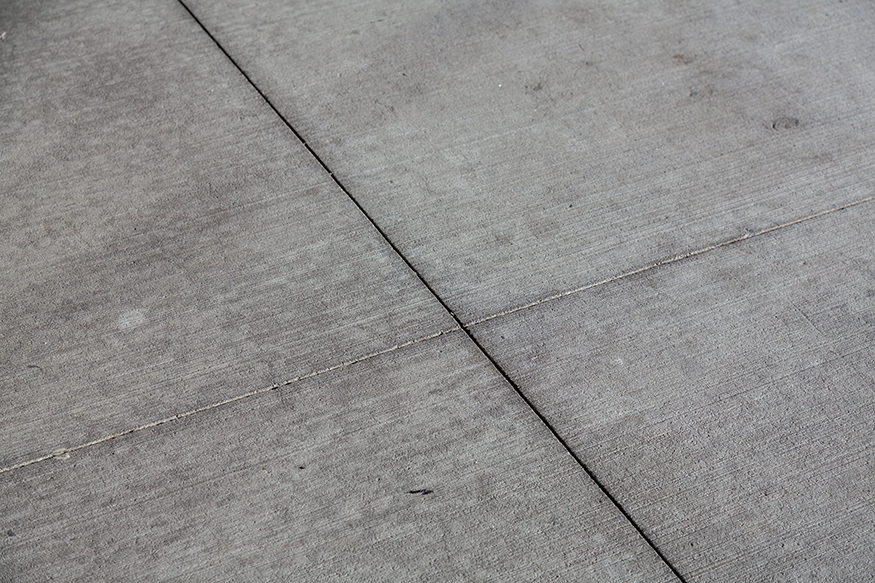Usage: Historic
Same mixture as Unpigmented Concrete, but with an added pigment to simulate granite slabs or bluestone flags in historic districts, as per LPC guidelines, or in historic, non-landmarked neighborhoods, as per PDC guidelines. This is one of two kinds of pigmented concrete — see also Pigmented Concrete (Dark).

Concrete pigmented to simulate granite: 9th Avenue, Manhattan

Concrete pigmented to simulate granite
Benefits
See benefits of Unpigmented Concrete
- Reinforces historic character
- Saw-cut joints provide cleaner look, simulating individually hewn blocks of stone, and add to the historic character of this treatment
- Less costly than bluestone flags or granite slabs
Considerations
See considerations of Unpigmented Concrete
- Different in appearance from new granite or bluestone
Application
- Appropriate, pending LPC review, in historic districts where LPC sidewalk regulations remain in force as a replacement for granite or bluestone that is beyond repair
- Appropriate, pending PDC review, in historic, nonlandmarked neighborhoods as a replacement for granite or bluestone that is beyond repair
Design
Specification source: DOT Standard Specifications Section 4.13
See design guidance for Unpigmented Concrete
- Flag size and pigmenting to match existing granite slabs or bluestone flags per LPC or PDC guidelines
- Sustainability opportunity: Supplementary cementitious materials (SCM)
- Sustainability opportunity: Recycled concrete aggregate (RCA)
Maintenance
See maintenance for Unpigmented Concrete
- Adjacent property owners are generally responsible for maintaining this material
- All sidewalk repair or replacement in historic districts requires written approval from LPC; See Review and Approval Process

